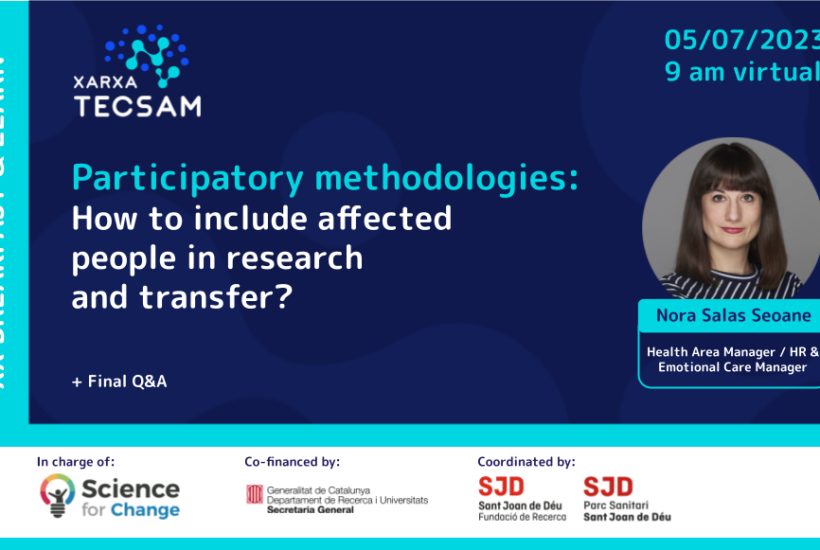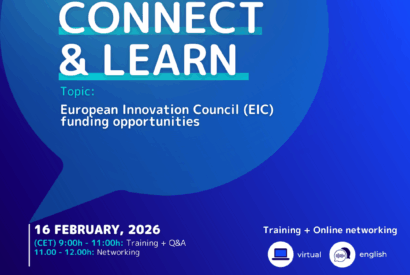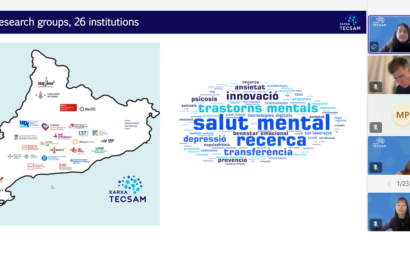Participatory methodologies: Including the first person in research and transfer
Are you part of the research community and want to learn about collaborative tools and dynamics to include the voice of affected people? Discover the key aspects at the XX B&L.

Participatory methodology is increasingly essential in the field of research, as it allows the inclusion of the users’ perspective, ensuring that their vision, perceptions and needs are reflected in the data collected. Thus, its use is gradually expanding among researchers.
In the field of mental health, these qualitative research approaches contribute significantly to enabling individuals with mental health issues to have a more active role in the process of reflection, decision-making, and ultimately, the type of research and solutions that are developed as a result.
Given the importance and central position of including affected individuals in the TECSAM Network, the XX Breakfast & Learn, which will take place virtually on July 5th from 9 to 10:30 am., is focused on understanding what participatory methodologies are; the tools, methods, and approaches they employ; and how they can be implemented by the research community.
The benefits that this type of process brings to researchers are countless, from involving and listening to the voices of users, expanding knowledge through the experiences of these individuals, enhancing the quality and validity of the research project, to multiplying the social impact of the research, among many others.
To gain a deeper understanding of these techniques, we will have Nora Salas Seoane from Science for Change, a citizen science company that uses these methodologies.
Through these experts, we will learn about the entire process of conceptualization, design, and implementation of collaborative dynamics to address challenges and co-create solutions in collaboration with affected individuals in the field of mental health.
During this virtual meeting, we will also learn about the outcomes of the “Mental Health and Women” workshop, held in May, which, using these participatory methodologies, allowed for capturing the views, demands, and needs of women affected by one or more mental health problems, with the aim of subsequently sharing them with the entire ecosystem and, particularly, the research community to guide their investigations.
This is a crucial session for researchers who wish to implement these methodologies in their research. Register now!

